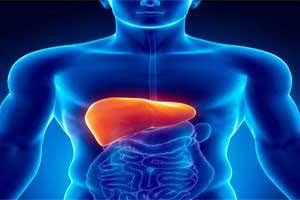- Home
- Editorial
- News
- Practice Guidelines
- Anesthesiology Guidelines
- Cancer Guidelines
- Cardiac Sciences Guidelines
- Critical Care Guidelines
- Dentistry Guidelines
- Dermatology Guidelines
- Diabetes and Endo Guidelines
- Diagnostics Guidelines
- ENT Guidelines
- Featured Practice Guidelines
- Gastroenterology Guidelines
- Geriatrics Guidelines
- Medicine Guidelines
- Nephrology Guidelines
- Neurosciences Guidelines
- Obs and Gynae Guidelines
- Ophthalmology Guidelines
- Orthopaedics Guidelines
- Paediatrics Guidelines
- Psychiatry Guidelines
- Pulmonology Guidelines
- Radiology Guidelines
- Surgery Guidelines
- Urology Guidelines
Blood transfusion increases risk of death and cancer recurrence in liver cancer patients

Compared to those not given a transfusion, patients given 1-4 units of blood were 55% more likely to die from any cause, whilst those receiving 4 or more units had almost double the risk of death.
Patients receiving a blood transfusion during liver cancer surgery are at increased risk of cancer recurrence and death, according to a recent study presented at the Euroanaesthesia congress to be held in Vienna, Austria from June 1-3, 2019.
The risk was markedly increased even when only a small amount of blood was transfused, researchers say. Findings showed that transfusion of 1 to 4 units of blood increased the risk of cancer recurrence by 23% and death by 55% compared to matched controls.
"Our findings from a large cohort highlighted a significant association between red blood cell transfusions and the risk of cancer recurrence as well as a dose-response relationship between the amount of transfusions and death after curative surgery for liver cancer", says Dr Ying-Hsuan Tai from Taipei Medical University Shuang Ho Hospital in Taiwan who led the research.
"The reason why blood transfusions substantially worsen cancer prognosis remains unclear, but it is likely to be related to the suppressive effects on the immune system."
Hepatocellular carcinoma (HCC) is the fifth most common form of cancer worldwide and the third most common cause of cancer-related deaths. It occurs frequently in people with cirrhosis (scarring of the liver) due to previous damage from hepatitis B or C virus, or long-term alcohol abuse.
Surgery to remove cancer and a margin of healthy tissue that surrounds it (resection) is a curative treatment for people with early-stage liver cancers who have normal liver function. Whilst advances in liver surgery have reduced operative blood loss considerably, liver resection still carries the risk of excessive blood loss and need for blood transfusion.
The extent to which blood transfusion worsens cancer outcomes after surgery is poorly understood. For several decades, research has reported conflicting findings and has been unable to conclude whether blood transfusion itself is causing problems, or if other factors such as the underlying medical conditions that make surgery necessary might be to blame.
In this study, Tai and colleagues investigated the effect of perioperative blood transfusion on cancer prognosis following HCC resection in 1,469 patients without lymph node involvement or metastasis undergoing surgery at Taipei Veterans General Hospital, Taipei, Taiwan between 2005 and 2016. Researchers assessed postoperative disease-free survival and overall survival up to September 2018. Using statistical modeling (a technique called the inverse probability of treatment weighting) they were able to match patients who had equivalent age and health conditions when comparing their outcomes.
Almost 1 in 3 patients (30%; 447 patients) received 1 to 4 units of allogeneic (from another individual) blood during or within 7 days of surgery, whilst more than 1 in 10 (12%; 179 patients) were given more than 4 units.
During a median 45 month follow-up, analyses showed that cancer was 23% more likely to recur in patients who received a transfusion (1-4 units) compared to those not given a transfusion, whilst those who received more than 4 units faced an 18% greater risk of recurrence compared with those who received none.*
Compared to those not given a transfusion, patients given 1-4 units of blood were 55% more likely to die from any cause, whilst those receiving 4 or more units had almost double the risk of death.
The authors conclude: "These data highlight the need for randomized trials to evaluate the influence of transfusion on cancer outcome and identify the level of anemia that patients undergoing liver cancer surgery can withstand (or the minimum amount of blood they need to have transfused) with minimal adverse effects in order to guide practice. Until these trials have been completed, surgeons should use practices that reduce the risk of bleeding and the need for transfusion."

Disclaimer: This site is primarily intended for healthcare professionals. Any content/information on this website does not replace the advice of medical and/or health professionals and should not be construed as medical/diagnostic advice/endorsement or prescription. Use of this site is subject to our terms of use, privacy policy, advertisement policy. © 2020 Minerva Medical Treatment Pvt Ltd